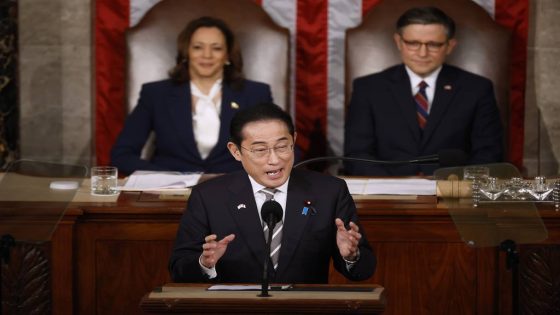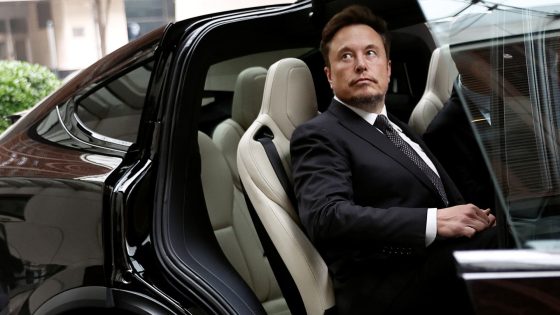The U.S. is inviting Japan to be a potential partner on part of the trilateral AUKUS pact that aims to deepen top-secret technology sharing and joint development on advanced defense capabilities.
The White House on Wednesday, during Japanese Prime Minister Fumio Kishidaâs state visit at the White House, floated Japanâs entry into the second pillar of the pact in a joint statement. While the first pillar would see the U.S. and Britain help Australia develop its own nuclear-powered submarine fleet, the second aims to jumpstart cooperation on emerging defense technologies.
During a joint address to Congress on Thursday, Kishida highlighted U.S.-Japanese cooperation on some of the key technologies the agreement seeks to enhance.
âJust yesterday, President [Joe] Biden and I demonstrated our commitment to leading the world on the development of the next generation of emerging technologies, such as AI, quantum, semiconductors, biotechnology and clean energy,â he told U.S. lawmakers.
Biden and Kishida announced a slew of new defense cooperation agreements between their two countries in a joint statement Wednesday. And while the statement opens up a door for Japan to join AUKUS Pillar II, Kishida did not formally commit to joining.
âFor Japan, to have a direct cooperation with AUKUS, nothing has been decided at this moment,â Kishida said at a press conference with Biden at the White House.
Australian Minister for Defense Industry Patrick Conroy and British Vice Adm. Martin Connell, the U.K. Royal Navy Second Sea Lord, both spoke favorably about Japan possibly joining the agreement during the Sea Air Space defense conference in Washington on Monday.
Vice Adm. Rob Gaucher, who command U.S. submarine forces in the Atlantic, said during the conference âwe already share a ton of technology with Japan and theyâre a great partner in the Pacific,â pointing to Tokyoâs unmanned capabilities.
âGetting the basics of AUKUS rightâ
AUKUS is still in its nascent stages, and the three participating countries are seeking consensus on overhauling their export control regimes, which critics say inhibit the information and technology sharing crucial to deepening collaboration among their respective defense industries.
âThe Biden administration has to get the basics of AUKUS right before it expands the pact to other partners,â Sen. James Risch, the top Republican on the Foreign Relations Committee, said in statement Wednesday, noting the State Department still needs to submit a certification to give Australia and Britain broad exemptions to U.S. export control laws.
âWithout this certification, cooperation on advanced technologies under AUKUS â the very types of military capabilities needed to counter China â will remain stymied by regulations and bureaucracy,â he added. âRather than take credit for things it has not yet done, the Biden administration should certify our two closest allies and deliver tangible defense capabilities now. Adding more partners delays capabilities and fails to deter China.â
The fiscal 2024 defense policy bill, which Congress passed in December, would give Australia and Britain a carveout in Washingtonâs International Traffic in Arms Regulation, or ITAR. Canada is currently the only country to enjoy a blanket ITAR exemption.
But to receive this, the State Department must certify Canberra and London have passed comparable export control laws of their own so U.S. technology does not fall into the hands of adversaries like China.
Australiaâs parliament is considering legislation to enhance its export control laws, but some Australian defense firms fear stricter regulations will inhibit their ability to do business with non-AUKUS countries, like Japan.
For his part, Kishida did not directly mention AUKUS in his address to Congress, which largely centered on urging lawmakers to continue supporting Ukraine and playing a leading role in the Indo-Pacific.
âAs we meet here today, I detect an undercurrent of self-doubt among some Americans about what your role in the world should be,â said Kishida. âAs I often say, Ukraine of today may be East Asia of tomorrow.â
Bryant Harris is the Congress reporter for Defense News. He has covered U.S. foreign policy, national security, international affairs and politics in Washington since 2014. He has also written for Foreign Policy, Al-Monitor, Al Jazeera English and IPS News.
Source Agencies



